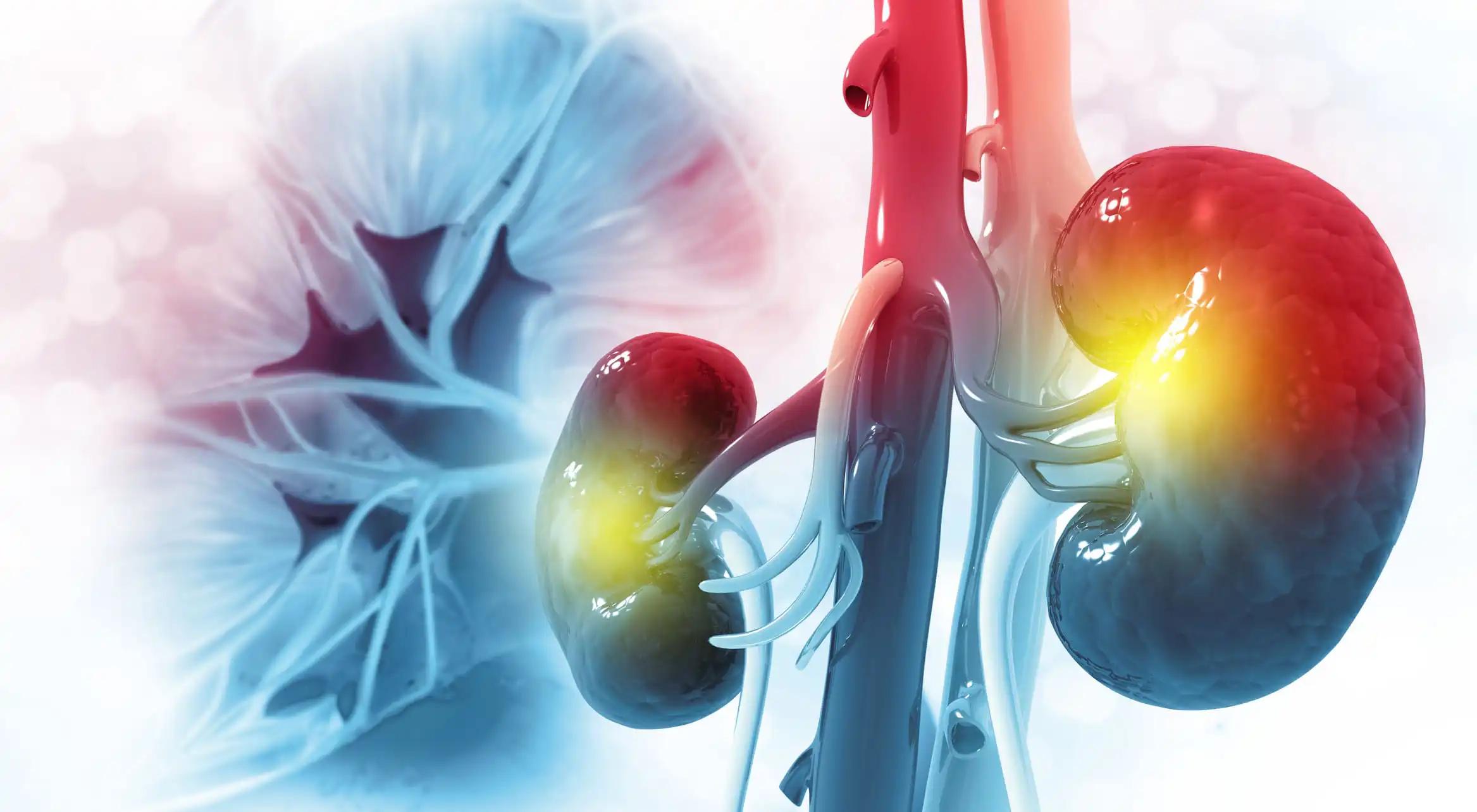KEY TAKEAWAYS
- The Phase 2 trial aimed to investigate the safety and efficacy of perioperative tislelizumab and axitinib in accRCC patients, assessing their potential role in improving outcomes.
- The primary endpoint was to determine ORR.
- Researchers noticed promising clinical efficacy and manageable safety of the tislelizumab and axitinib combination as neoadjuvant therapy for accRCC patients.
Combining PD-1/PD-L1 inhibitors with vascular endothelial growth factor (VEGF) inhibitors has shown enhanced survival benefits in advanced clear cell renal cell carcinoma (accRCC). However, the application of this combination in the perioperative setting for localized RCC remains unclear.
Shun Zhang and the team aimed to investigate the safety and efficacy of tislelizumab and axitinib in reducing tumor size before surgical resection in non-metastatic clear cell RCC.
They performed an inclusive analysis in an investigator-initiated study involving 20 patients with high-risk non-metastatic ccRCC (clinical stage T2a-4 and/or N1, M0 lesions). Participants received 12 weeks of neoadjuvant ticelizumab and axitinib before nephrectomy.
The primary endpoint focused on the objective response rate (ORR) (complete and partial response) as per RECIST v1.1 criteria. Secondary endpoints included disease-free survival (DFS), overall survival (OS), surgical outcomes, and safety assessments.
About 13 eligible patients were enrolled by September 2023, with 11 completing the neoadjuvant therapy, exhibiting a median age of 60 (range 45-73) years. Among these, 9 patients underwent surgery as planned without delays. One patient experienced disease progression during treatment and subsequently received further systemic therapy. In the 9 evaluable patients, the investigator-assessed confirmed ORR was 55.5%.
The median reduction in the size of the primary renal tumor was 26.2% (range 12.5-45%). Pathologic findings revealed that 1 patient (11.1%) achieved a complete response (CR) according to RECIST 1.1, while 4 patients achieved a partial response (PR). Notably, a previously considered unresectable patient became resectable by the end of the treatment, and 2 patients underwent a conversion from radical to partial nephrectomy.
The most common neoadjuvant therapy-related AEs included hematologic toxicity, hypothyroidism, nausea, vomiting, decreased appetite, fatigue, diarrhea, and elevated ALT/AST levels. No Grade 4/5 treatment-related AEs (TRAEs) were reported. Furthermore, no direct intraoperative complications and no drug-related surgical complications occurred postoperatively.
The study concluded that neoadjuvant therapy with tislelizumab and axitinib demonstrates clinical efficacy and maintains a manageable safety profile for patients with accRCC.
The trial is sponsored by Hongqian Guo, The Affiliated Nanjing Drum Tower Hospital of Nanjing University Medical School.
Source: https://meetings.asco.org/abstracts-presentations/229934
Clinical Trial: https://clinicaltrials.gov/study/NCT05172440
Zhang S, JI C, Liu G, et al. (2024). “A phase II study of neoadjuvant tislelizumab and axitinib in patients with locally advanced non-metastatic clear cell renal cell carcinoma (accRCC).” Presented at ASCO GU 2024 (Abstract 420).



